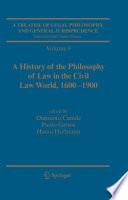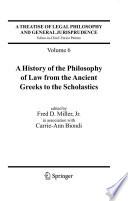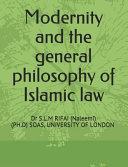Judul : MANAJEMEN BISNIS SYARIAH (Konsep dan Aplikasinya dalam Bisnis Syariah) Penulis : Suparjo Adi Suwarno Supriyanto Ahmad Hendra Rofiullah Ukuran : 14,5 x 21 cm Tebal : 140 Halaman No ISBN : 978-623-6233-60-3 Pengantar K.H. MUHAMMAD HOLID, S.Ag, M.Hum (Ketua STIS Abu Zairi Bondowoso) Buku ini mengetengahkan tentang bagaimana mengelola bisnis berbasis syariah. Seperti ketahui bersama, bahwa Bisnis syariah saat ini bak cendawan dimusim penghujan sehingga diperlukan literasi yang menunjang pada bisnis syariah. Dalam buku ini disajikan sebanyak 9 bab dengan mengetengahkan berbagai praktik manajemen dalam mengelola bsinis syariah mulai dari pengertian bisnis syariah perencanaan bisnis, pengorganisasian bisnis ,kepemimpinan bisnis syariah, mengelola sumberdaya manusia,mengelola keuangan bisnis,etika bisnis syariah,etos kerja bisnis syariah, kinerja bisnis syari’ah hingga. Buku bisa dibaca oleh mahasiswa, dosen maupu masyarakat umum baik sebagai landasan teori maupun sebagai praktek karena dalam buku ini tidak hanya berisi tepori – teori belaka namun juga dilengkapi dengan praktik – praktik dalam bisnis syariah disamping itu juga ditanamkan nilai – nilai yang mengacu pada sumber – sumber syar’iah baik dari Al –Qur’an, sunnah nabi , dan kitab- kitab rujukan ulama sehingga bisa memperkaya literasi bagi yang membacanya. Buku Manajemen Bisnis Syariah wajib dimiliki oleh mahasiswa, dosen maupun pelaku bisnis syariah untuk menambah literasi serta wawasan karena buku ini dilengkapi tidak hanya teori namun juga praktik nyata dalam Bisnis Syariah. Disamping itu, buku ini juga mengajak para pembaca untuk berbisni secara syariah yang bebas dari MAGRIB ( Maisir, Gharrar dan Riba) dan dilengkapi juga dengan etika dalam berbisnis secara syariah.
-
ISBN 13 : 6236233608
-
ISBN 10 : 9786236233603
-
Judul : MANAJEMEN BISNIS SYARIAH (Konsep dan Aplikasinya dalam Bisnis Syariah) Penulis :
-
Pengarang :
Suparjo Adi Suwarno,
Supriyanto,
Ahmad Hendra Rofiullah,
Supriyanto,
Ahmad Hendra Rofiullah,
Supriyanto,
Ahmad Hendra Rofiullah,
Supriyanto,
Ahmad Hendra Rofiullah,
Supriyanto,
Ahmad Hendra Rofiullah,
Supriyanto,
Ahmad Hendra Rofiullah,
Supriyanto,
Ahmad Hendra Rofiullah,
Supriyanto,
Ahmad Hendra Rofiullah,
Supriyanto,
Ahmad Hendra Rofiullah,
Supriyanto,
Ahmad Hendra Rofiullah,
Supriyanto,
Ahmad Hendra Rofiullah,
Supriyanto,
Ahmad Hendra Rofiullah,
Supriyanto,
Ahmad Hendra Rofiullah,
Supriyanto,
Ahmad Hendra Rofiullah,
Supriyanto,
Ahmad Hendra Rofiullah,
-
Kategori : Business & Economics
-
Penerbit : Penerbit Adab
-
Bahasa : id
-
Tahun : 2021
-
Halaman : 140
-
Google Book : https://play.google.com/store/books/details?id=wl5BEAAAQBAJ&source=gbs_api
-
Ketersediaan :
1 Abdul Aziz, Manajemen Investasi Syariah, (Bandung: Alfabeta, 2010),19. 2 Abdul Aziz, Manajemen Investasi Syariah,...., 20 4 Asmuni dan Siti Mujiatun,” Bisnis Syariah”(Medan: Perdana Publishing, 2016),. 2 Suparjo Adi Suwarno, ...










